Hyundai i10 VS Toyota Aygo
In the competitive segment of compact city cars, the Hyundai i10 and Toyota Aygo stand out with their unique strengths. While the i10 offers a surprisingly spacious interior and an array of tech features, the Aygo is celebrated for its agile handling and distinctive styling. Ultimately, both models cater to urban drivers seeking efficiency and practicality, making them top contenders in the city car market.
Hyundai i10
The Hyundai i10 impresses with its compact design, making it an ideal choice for navigating through busy urban environments. Its interior is surprisingly spacious, offering drivers and passengers comfort beyond what one might expect from a city car. The model combines efficiency and practicality, making it an attractive option for those seeking both economy and functionality in their daily commute.
detailsToyota Aygo
The Toyota Aygo presents itself as a compact city car, perfect for navigating tight urban spaces with ease. Its stylish design is complemented by a vibrant variety of colour options, making it a standout choice for those looking to express their individuality. Inside, the Aygo offers a comfortable and functional cabin, equipped with modern features that enhance the overall driving experience.
detailsThe Compact Clash: Hyundai i10 vs. Toyota Aygo
In the ever-competitive market of compact cars, the Hyundai i10 and Toyota Aygo stand out as formidable contenders. Both vehicles are designed for urban driving and offer a blend of efficiency, practicality, and style. However, the choice between the two boils down to various technical aspects and innovations that cater to different driver preferences.
Performance and Engine Options
The Hyundai i10 is available with a range of petrol engines that produce between 63 to 90 horsepower. These engines provide a mix of performance and efficiency, making the i10 suitable for both city commuting and longer journeys. With options for both manual and automated manual transmissions, the i10 offers flexibility in driving experience. It can accelerate from 0 to 100 km/h in as little as 11.4 seconds, paired with a top speed of 175 km/h. This model boasts a fuel consumption as low as 4.9 liters per 100 km, making it an economical choice.
On the other hand, the Toyota Aygo features a single petrol engine outputting 72 horsepower. It also provides manual and CVT options, which make it smooth for city driving. The Aygo's acceleration from 0 to 100 km/h is slightly slower than the i10, clocking in at around 15.5 seconds. The top speed for the Aygo is a modest 158 km/h, accompanied by a competitive fuel consumption rate of 4.8 liters per 100 km.
Dimensions and Practicality
When it comes to sizing, the Hyundai i10 measures 3,670 mm in length and 1,680 mm in width, making it compact enough for easy maneuverability in urban settings. It offers a trunk capacity of 252 liters, which is slightly more than Aygo's 231 liters, providing more storage space for everyday errands. The i10's seating configuration allows for up to five passengers, enhancing its versatility as a family hatchback.
The Aygo, while a smidge longer at 3,700 mm, has a wider body at 1,740 mm. This extra width adds to its road presence and enhances interior room for passengers, although it accommodates only four people. Despite smaller trunk space, its clever design ensures that cargo can still be managed efficiently. Both vehicles feature five doors, making access convenient for passengers.
Innovations and Technological Features
Both the Hyundai i10 and the Toyota Aygo come equipped with modern technological advancements that enhance the driving experience. The i10 boasts various tech features, including a touchscreen infotainment system compatible with Apple CarPlay and Android Auto, providing seamless connectivity with smartphones. Additionally, advanced safety features such as electronic stability control and multiple airbags come standard, ensuring peace of mind for drivers and passengers alike.
The Aygo, on the other hand, is imbued with Toyota's reputation for reliability and safety. It includes a user-friendly infotainment system, though it may not be as advanced as the i10's. The Aygo is also imbued with essential safety features, including a robust suite of active safety technologies, making it a solid choice for safety-conscious buyers.
Environmentally Friendly Options
In terms of environmental impact, the Hyundai i10 offers CO2 emissions ranging from 111 to 123 g/km, depending on the engine variant, which places it in the C and D efficiency classes. Meanwhile, the Toyota Aygo’s emissions are lower, ranging from 108 to 112 g/km, earning it a solid classification of C. This distinction may appeal to eco-conscious consumers looking for efficient urban transportation.
Final Thoughts: Which Compact Reigns Supreme?
Deciding between the Hyundai i10 and Toyota Aygo ultimately depends on individual preferences. The i10 excels with slightly better performance, more horsepower, and a larger trunk capacity, making it a practical option for families and those needing more space. Conversely, the Aygo offers a unique design and Toyota's reliability, appealing to urban drivers who prioritize eco-friendliness and safety features.
Both vehicles present a compelling value proposition in the compact car segment, proving that innovation and efficiency can indeed come together to create excellent urban vehicles.
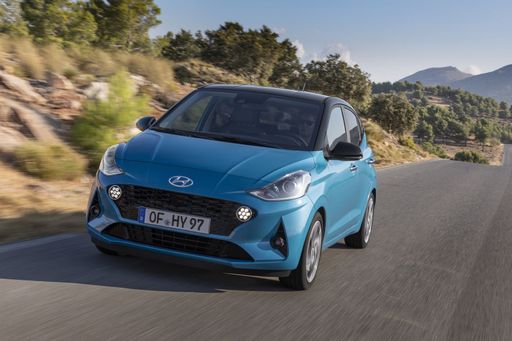 @ hyundai.news
@ hyundai.news
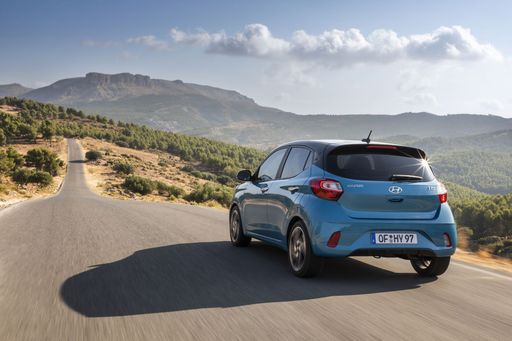 @ hyundai.news
@ hyundai.news
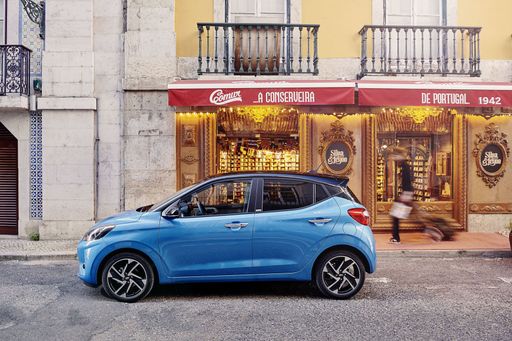 @ hyundai.news
@ hyundai.news
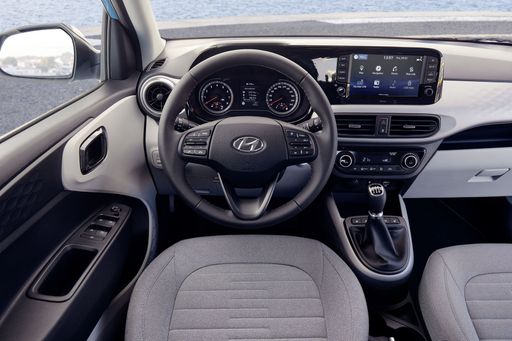 @ hyundai.news
@ hyundai.news
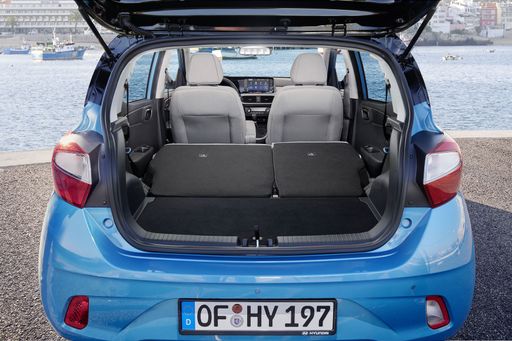 @ hyundai.news
@ hyundai.news
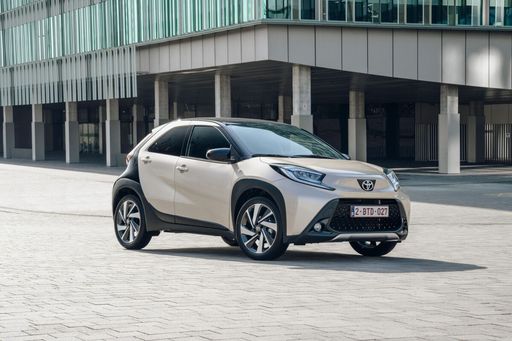 @ Toyota
@ Toyota
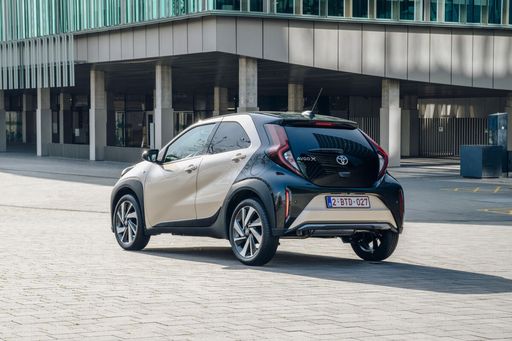 @ Toyota
@ Toyota
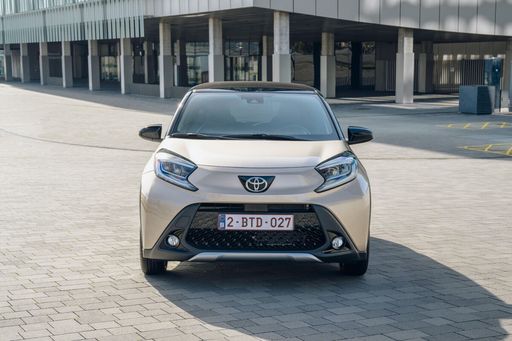 @ Toyota
@ Toyota
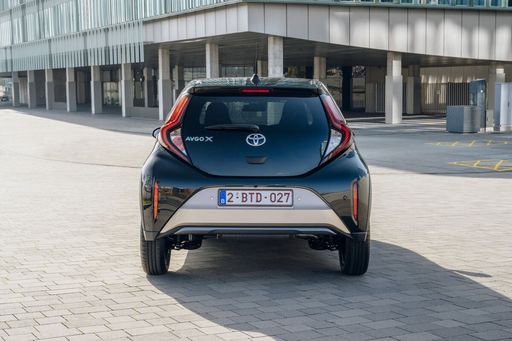 @ Toyota
@ Toyota
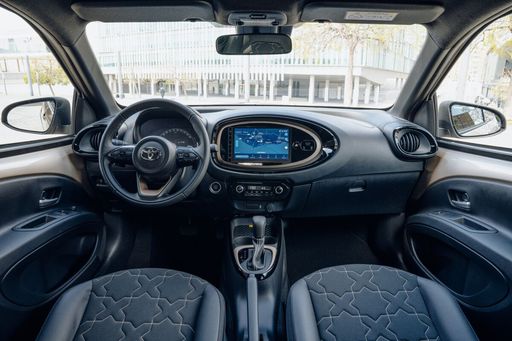 @ Toyota
@ Toyota
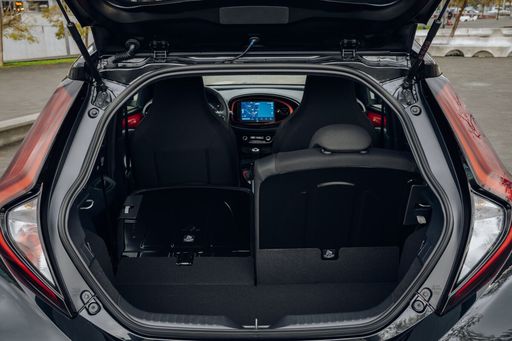 @ Toyota
@ Toyota

|

|
|
|
|
Costs and Consumption |
|
|---|---|
|
Price
about 15700 - 20500
$
|
Price
about 16200 - 22100
$
|
|
Consumption L/100km
4.9 - 5.4
L
|
Consumption L/100km
4.8 - 4.9
L
|
|
Consumption kWh/100km
-
|
Consumption kWh/100km
-
|
|
Electric Range
-
|
Electric Range
-
|
|
Battery Capacity
-
|
Battery Capacity
-
|
|
co2
111 - 123
g/km
|
co2
108 - 112
g/km
|
|
Fuel tank capacity
36
L
|
Fuel tank capacity
35
L
|
Dimensions and Body |
|
|
Body Type
Hatchback
|
Body Type
SUV
|
|
Seats
4 - 5
|
Seats
4
|
|
Doors
5
|
Doors
5
|
|
Curb weight
996 - 1099
kg
|
Curb weight
1015
kg
|
|
Trunk capacity
252
L
|
Trunk capacity
231
L
|
|
Length
3670 - 3675
mm
|
Length
3700
mm
|
|
Width
1680
mm
|
Width
1740
mm
|
|
Height
1480 - 1483
mm
|
Height
1510
mm
|
|
Payload
344 - 423
kg
|
Payload
345
kg
|
Engine and Performance |
|
|
Engine Type
Petrol
|
Engine Type
Petrol
|
|
Transmission
Manuel, Automatic
|
Transmission
Manuel, Automatic
|
|
Transmission Detail
Manual Gearbox, Automated Manual
|
Transmission Detail
Manual Gearbox, CVT
|
|
Drive Type
Front-Wheel Drive
|
Drive Type
Front-Wheel Drive
|
|
Power HP
63 - 90
HP
|
Power HP
72
HP
|
|
Acceleration 0-100km/h
11.4 - 18.4
s
|
Acceleration 0-100km/h
15.5 - 15.6
s
|
|
Max Speed
143 - 175
km/h
|
Max Speed
151 - 158
km/h
|
|
Torque
93 - 172
Nm
|
Torque
93
Nm
|
|
Number of Cylinders
3 - 4
|
Number of Cylinders
3
|
|
Power kW
46 - 66
kW
|
Power kW
53
kW
|
|
Engine capacity
998 - 1197
cm3
|
Engine capacity
998
cm3
|
|
Top speed
143 - 175
km/h
|
Top speed
151 - 158
km/h
|
General |
|
|
Model Year
2024
|
Model Year
2022 - 2024
|
|
CO2 Efficiency Class
C, D
|
CO2 Efficiency Class
C
|
|
Brand
Hyundai
|
Brand
Toyota
|
Hyundai i10
Introduction to the Hyundai i10
The Hyundai i10 has consistently proven to be a dependable and stylish companion for urban driving. Known for its compact design and efficiency, this hatchback offers a perfect blend of modern aesthetics and practicality, making it a popular choice for city dwellers and small families alike.
Performance and Efficiency
The Hyundai i10 is available with both manual and automatic transmissions, catering to various driving preferences. Engine power ranges from 63 to 90 PS, providing a versatile driving experience for both novice and seasoned drivers. The fuel consumption varies between an impressive 4.9 to 5.4 litres per 100 kilometres, fitting for those looking to minimise fuel costs while also reducing their carbon footprint.
Engine and Transmission
Equipped with a choice of 1.0-litre or 1.2-litre engines, the i10 offers up to 172 Nm of torque, ensuring lively performance. The models feature front-wheel-drive configurations, allowing for smooth handling and reliable road performance. The car excels in city driving but is equally capable on longer journeys.
Interior and Comfort
Despite its compact size, the Hyundai i10 does not compromise on interior space and comfort. It accommodates four to five occupants comfortably, offering sufficient legroom and headroom. Its flexible seating arrangement and a 252-litre boot make it ideal for both quick trips and weekend getaways.
Safety and Technology
Safety remains a priority with Hyundai, and the i10 is no exception. It comes equipped with multiple airbags, stability control, and advanced braking systems. Technology-wise, the i10 features a user-friendly infotainment system with smartphone connectivity, ensuring a pleasant and connected drive.
Design and Style
The Hyundai i10’s design is both modern and sleek, making it stand out in the compact hatchback segment. With a length ranging from 3670 to 3675 mm, a width of 1680 mm, and a height of 1480 to 1483 mm, the i10 strikes a perfect balance between style and functionality.
Affordable Pricing and Value
The i10 is available in several trims including the Select, N Line, and Prime, among others, with prices ranging from €16,990 to €22,190. Considering its features and low running costs — with monthly expenses estimated between €694 to €793 — the Hyundai i10 offers substantial value for those seeking an economical yet stylish hatchback.
Conclusion
The Hyundai i10 combines efficiency, modern design, and practicality in a compact package. Whether you are seeking a reliable city car or an economical daily driver, the Hyundai i10 is a strong contender worth considering in the compact car market of 2024.
Toyota Aygo
The Urban Maverick: Exploring the Toyota Aygo
The Toyota Aygo has long been a favourite for city dwellers and those who appreciate a compact yet stylish vehicle. With its latest iterations, the Aygo promises to deliver a blend of efficiency, modernity, and cutting-edge technology. Let's take a closer look at what this impressive vehicle has to offer.
Under the Bonnet: Technical Specifications
At the heart of the Toyota Aygo is a 1.0-litre three-cylinder engine. This petrol-powered engine is capable of producing 72 PS (53 kW) and offers a maximum torque of 93 Nm. The efficient engine achieves a fuel consumption of just 4.8 to 4.9 L/100km, making it an economical choice for urban commuting. The car features a front-wheel-drive layout and is available with either a manual transmission or a CVT automatic gearbox, providing flexibility for various driving preferences.
Performance on the Road
Despite its compact size, the Toyota Aygo offers a respectable acceleration from 0 to 100 km/h in just 15.5 to 15.6 seconds, with a top speed ranging between 151 and 158 km/h. This makes it well-suited for both city driving and highway cruising. The car's lightweight design of 1,015 kg ensures nimble handling and manoeuvrability in tight urban environments.
Design and Dimensions
The Aygo's contemporary exterior design is both attractive and functional. It measures 3,700 mm in length, 1,740 mm in width, and 1,510 mm in height, offering a compact footprint without sacrificing interior space. With five doors and four seats, the Aygo is practical for everyday use. The vehicle provides a boot space of 231 litres, ensuring you have enough room for groceries and luggage on the go.
Innovation and Features
The Toyota Aygo is equipped with a range of innovative features, enhancing the driving experience. Available in several trim levels including Business Edition, Explore, and Style, each comes with its own unique set of features. Standard offerings across trims include advanced safety features, a modern infotainment system, and optional extras such as climate control and advanced connectivity options.
Environmental Considerations and Efficiency
In line with environmental consciousness, the Toyota Aygo carries a CO2 efficiency class of C, with emissions ranging from 108 to 112 g/km. This ensures that the vehicle not only provides an efficient driving experience but also minimises its environmental impact. Additionally, the running costs are attractive, with estimated costs per kilometre between 27.4 and 31.3 cents, and monthly costs ranging from €685 to €783.
Pricing and Market Appeal
The Toyota Aygo is positioned competitively within the market, with pricing starting from €17,550 and reaching up to €23,950, depending on the selected trim and options. Its affordability, combined with its efficient performance and modern features, makes it an appealing choice for a wide range of buyers, particularly those seeking a reliable and economical vehicle for urban environments.
In conclusion, the Toyota Aygo stands out as a versatile and stylish city car that combines practicality with a touch of sophistication. Whether you're navigating busy urban streets or cruising on the motorway, the Aygo is well-equipped to handle the journey with ease and efficiency.
